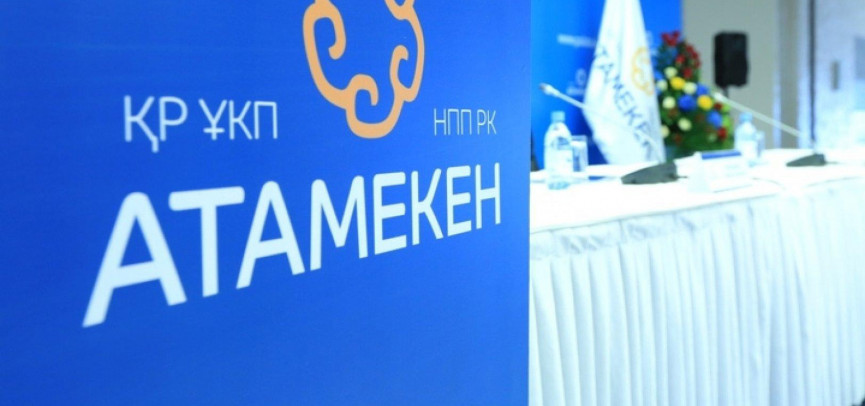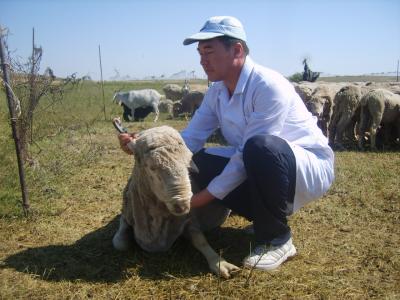
At the end of last week, Kazakhstan's media space was shaken by the sad news that an outbreak of avian influenza had been detected in the north of the country. In accordance with the rules, Kazakhstan notified the World Organisation for Animal Health, and temporary restrictions were imposed on the export of relevant products.
Poultry farmers and owners of private farms know very well how serious this outbreak is. For example, in just one day (19-20 September) at the Bishkul poultry farm in the North Kazakhstan region, half of the laying hens died of avian influenza.
"Less than half of the laying hens are left. More than 180 thousand laying hens died last night, today we expect another 30-40 thousand. There is practically no breeding stock of geese left. Tens of thousands of birds have died in a few days. What will happen next spring - it's scary even to imagine, people will be left without poultry. Even if some chickens survive, the entire fowl will have to be disposed of, as it is a carrier of avian influenza. We are aware that a great tragedy has struck: 170 people work at the poultry farm, which means that 170 families risk being left without a source of income before winter," said Bishkul poultry farm technologist Tatiana Kostenko in an interview with the media.
At the same time it should be noted that the Ministry of Agriculture has reacted fairly quickly to the situation, as 873 thousand doses of vaccine were delivered to the region in a short period of time. In addition, a special commission of the Ministry held talks with the heads of poultry farms in the region regarding the creation of biologically safe isolated zones around the enterprises. If all necessary requirements are met, poultry farms in the region will be able to obtain the right to freely sell their products.
At the same time, one of the main issues for farmers in the near future will be obtaining reimbursement. We asked Yerken Naurzbekov, Deputy Director of the Department of Agriculture and Food Industry at Atameken SPE, to comment on this issue.
"When there are outbreaks of such diseases, by law farmers have the opportunity to receive reimbursement from the state. In some cases there is a full reimbursement, in others there is a partial reimbursement. Things are not always smooth on this matter. We will see if farmers have problems getting reimbursement, we can get involved in protecting business interests, but it is too early to talk about it.
The most important thing now is to eliminate the focus and consequences of this outbreak as soon as possible, because it directly affects export opportunities. There is overproduction in many areas of poultry production, so it is in our advantage to open up borders as soon as possible. It is extremely important that companies resume their exports. At present, the necessary veterinary measures are being taken. Then the damage will be calculated," said Yerken.
He noted that as part of the standard procedure, a record of destroyed birds must be made and the economic damage must be assessed. Farmers will then be able to apply for compensation.
"If there is a problem, we will protect the interests of the business. We will receive all the information we need through our regional chambers, especially when it comes to any difficulties in this regard," concluded Yerken.
To recall, the day before it became known that a reserve of 390 million tenge has been made available to pay compensation to farmers.
"The National Anti-Epizootic Unit (NAEU) is the official organization that is responsible for paying compensation for the dead poultry. Throughout the year, all akimats have special commissions which are involved in determining the average monthly market value of dead cattle or poultry. Based on the decisions of the akimats, the NAEU accepts all necessary materials from the regional veterinary service and disburses payments to each owner of the fallen poultry to their personal account. If the documents are properly drawn up, the payment is made within three days. To date, about 390 million tenge has been allocated to the NAEU for payments related to compensation of the cost of dead poultry to owners of private households," said Deputy Minister of Agriculture Gulmira Issayeva during an online briefing.
At the same time, she noted that the death rate of poultry has already been registered in five regions of Kazakhstan.
"Poultry losses occurred in five regions: Kostanai, Pavlodar, North-Kazakhstan, Karaganda and Akmola," the Vice-Minister added.
The other day, the cause of the outbreak of avian influenza also became known. Thus, an epizootic survey showed that the outbreak began with a wild bird, which is currently migrating from north to south. The contamination occurred through the use of shared reservoirs.
Currently, the Ministry of Agriculture continues to fight against the spread of highly pathogenic avian influenza: vaccines are brought in, territories are disinfected and the dead fowls are destroyed. It remains to be hoped that the agency will be able to cope with the situation as soon as possible.
The editorial staff of the World of Nan portal will continue to monitor developments.












































Обсуждение